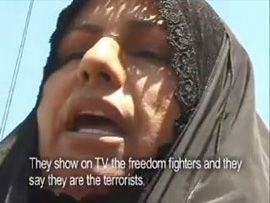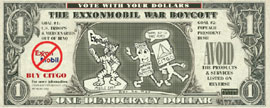ANTANANARIVO - The prospect of oil in Madagascar has raised hopes of rapid development, but the poor island nation faces a tough challenge if it wants to avoid the troubled experiences of some of Africa's existing oil producers.
Top officials from ExxonMobil, the world's biggest oil company, opened an operation in Madagascar on Friday.
Exxon is ramping up exploration on the world's fourth largest island, where it thinks its leases off the northwest coast could hold as much as 7 to 10 billion barrels of oil.
The company plans to start drilling its first exploratory well later this year or in early 2007, which would be the first-ever deepwater well to be drilled off Madagascar.
"Before a well is drilled, we'll have no idea of the outcome. (They are) wild cat wells," Tim Cejka, head of ExxonMobil Exploration Company, told journalists at the company's new office in Antananarivo.
Cejka told Reuters the chances of finding economically recoverable reserves were in the 10 to 20 percent range but still worth the risk given the enormous potential.
For Madagascar's government, keen to attract investment on the island of 17 million, three quarters of whom live on less than a dollar a day, the arrival of an oil company the size of Exxon is a big step.
"ExxonMobil coming to Madagascar marks a new phase," Prime Minister Jacques Sylla, told Reuters in an interview on Friday. "The government has made huge efforts to attract investors. We are now seeing the fruits of those efforts."
OTHER OIL GIANTS
The government is in the process of negotiating concessions with several other oil giants, including Chevron Texaco, Royal Dutch Shell, BP, Total, Statoil and China's National Petroleum Corporation.
Mining companies are also exploring Madagascar, looking for gold, gemstones, nickel and bauxite. In August, Rio Tinto, the world's second biggest mining company, confirmed it would go ahead with a $775 million ilmenite mine in the south.
Ilmenite is the ore from which titanium is produced.
But Madagascar is keen to avoid repeating the mistakes of other resource-rich African countries, where petrodollars have spawned corruption and failed to raise living standards.
Mismanagement of Nigeria's oil wealth has bred instability in the oil-rich Niger delta region, with militants attacking oil facilities in recent weeks, disrupting supplies.
"We are going to develop the country. We plan to manage (oil revenues) in the best possible manner, so that majority of the population benefits," said Sylla.
But analysts warn that such benefits will only accrue if strong institutions are put in place to govern oil revenues.
"The key is political openness," said Global Insight analyst Olly Owen. "If you have a government like this one, susceptible to cronyism and cracking down on democratic freedoms, and you put oil in the mix, it could go wrong."
Owen said Madagascar would need to work to prevent graft.
"If you put institutions in place to filter the oil money, with legislative oversight, there's a good chance of making it work."
DONOR RESPONSIBILITY
Petter Langseth, a Norwegian adviser to president Marc Ravalomanana, said donors must take a greater responsibility for ensuring oil does not breed bad government.
"I'm embarrassed to see how the donor community is watching how one African oil country after another is getting into serious problems and social unrest from not managing (oil) more seriously," he said.
Langseth said oil companies operating in Madagascar would be held accountable for their impact.
"The oil industry has been getting away with not taking their global citizenship responsibilities seriously," he said. "Exxon should build capacity in Madagascar by (helping with) accountability."
Some oil companies, like BP, have recently pledged to be more transparent in their dealings with governments and to help them prepare their economies for the huge sums of dollar revenue that flood in when oil production starts.
But ExxonMobil says oil companies have no right to involve themselves in good governance or anti-corruption initiatives in the countries in which they operate.
"We're a company, not a country," said Cejka. "As much as I can't tell the US government what to do with the royalty I pay, I can't tell the Nigerian or the Chadian government how to deal with their money. That's their business."
The government says it has the benefit of hindsight.
"Madagascar's good luck is that we have the experience of other oil-producing countries, good and bad," said Elise Razaka, head of the strategic resources office. "We are taking steps to avoid the kinds of events happening in Nigeria."
Story by Tim Cocks
Story Date: 31/1/2006
Fallujah Says it all
FALLUJAH - In 2004 the United States destroyed Fallujah. It was a war crime and a crime against humanity. This action typifies the U.S. invasion and occupation of Iraq. This video shows what happened, and what continues to happen daily if on a smaller scale.

Watch the video preview of
"Caught in the Crossfire".
ConsumersForPeace.org, through the ExxonMobil War Boycott, is working to stop the killing in Iraq; to end the United States' occupation of Iraq; and to bring the perpetrators of the war to justice.
To assist you in boycotting ExxonMobil and firms connected to it through its board of directors, you may wish to have Democracy Dollars.

You may wish to write to the ExxonMobil Board of Directors